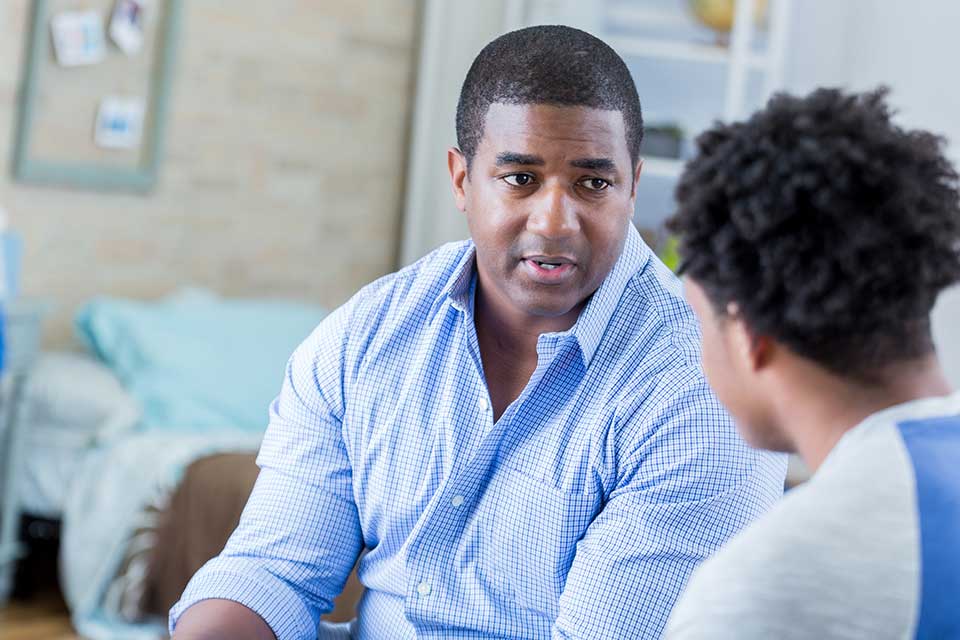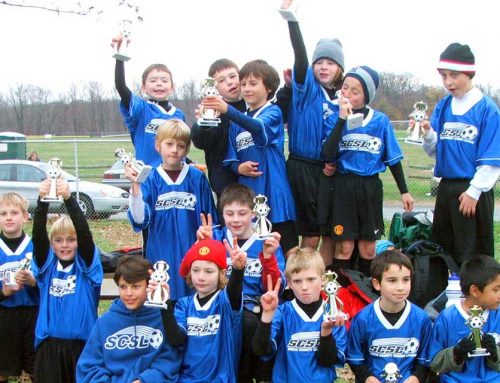Here are some situations that no doubt you have dreaded: getting a call from the school nurse and learning that your child tested positive for a drug; seeing your son or daughter come in from a party with unusually red eyes or hearing them vomiting in the bathroom; coming home from a weekend away to find your house unusually neat and clean, but finding a recycling can full of beer bottles in the garage; or getting a call from the police saying they have your child in custody. Substance use by teenagers is problematic in several ways. It is illegal, and compromises their physiological, psychological, emotional, and social development. It is therefore an issue that requires your attention. How you respond is very important and is usually informed by what is going inside you in terms of what you find yourself thinking and feeling. Before I suggest how you might best respond, it may be helpful to look at some of the responses from parents I have seen in my practice.
All Too Frequent Less Than Functional Parental Responses
Put Your Head in the Sand
When confronted with evidence of their child’s alcohol or drug use, some parents respond with outright denial – “not my kid!” to minimizing the behavior – “All the kids are doing it” and “It’s normal. I smoked pot when I was her age.” Even if you smoked pot when you were her age, things are different now starting with the reality that marijuana either in the flower or vape form is many times more powerful than it was a generation ago. Besides, now you are the parent. It’s your responsibility to watch out over her and to create the conditions to make her physically, emotionally and developmentally safe.
A few parents smoke pot with their kids. While this may make them seem cool, it is not. I know a woman in her thirties who had that kind of relationship with her dad. In her early thirties she was steaming mad at him for what seemed pretty hip when she was in high school. She resented the fact that he did not do his job in guiding her in the right direction. And then there are the parents who buy the kegs of beer for their teenagers’ friends rationalizing it as safe because they took all the kids’ car keys. There are two problems with having your head in the sand. The first is that you are missing an opportunity to have a meaningful conversation with your child about drugs, alcohol and other challenges they are facing in life. The second is that you are abdicating your parental responsibilities. Adolescents need guidance, limits and boundaries. Setting them and enforcing them is your job.
Taking it Personally
Parent’s buttons get pushed when they find that their kids have been drinking or using substances. That is absolutely understandable. What is not normal is when they do not maintain their emotional boundaries with their kids. The drinking or drugging is the kid’s action and parents need to respond to that. When you make it about you, the focus on your child is lost. There are two ways in which parents take their child’s drug and alcohol use personally.
Freaking Out: How Could You Do This to Me?
When a parent feels personally injured, hurt or insulted by their child’s behavior, it is not unusual for the parent to “freak out.” Screaming, throwing things, name calling, tearing up your son’s room and threatening to be physical with him takes the focus off of your child’s behavior and puts it on your behavior instead. A teenager who has a parent that is acting crazy is likely to be less accountable for their actions because you have inadvertently given them something else to focus on. You have lost credibility as a “sane” adult and given your child a reason to resent you and to be determined to “get you back” by using again as soon as they have the opportunity.
While it may be true that your child’s substance use may in part be a disrespectful or rebellious action, by inordinately focusing on that, you are making his or her action about you. It is at the least a poor choice your child has made. Even if they did smoke the pot to get you back, it is likely there an emotional upset in the child that warrants your concern, not your anger. Your child needs your help, your concern and empathy, not a police action.
I’m a Failure as a Parent
The second form of taking it personally is the flip side of the same coin and the focus on your child’s behavior is lost in an overinvolvement in deprecating yourself as a parent. Feeling that you are a bad or ineffective parent and blaming yourself for your child’s action is going too far. Again, this is not about you, it’s about responding effectively to your child’s actions.
It is certainly normal and helpful to self-reflect. If you were smoking pot in the backyard with your friends during a summer barbeque, don’t assume that your kids didn’t notice. Similarly, if you have never conveyed to your kids your expectation that they perform, work hard and follow through athletically, musically and academically, it is reasonable to question your excessively laissez faire approach. However, aside from these sorts of examples, you need to gather yourself and focus on the needs of your child. Be sad, be concerned, but don’t take it personally. Step up and figure out what your child needs now and what you can do as a competent parent to address the problem.
How Best to Respond
Be the Adult in the Room
Allow yourself to take a deep breath and assess whether your upset, self-doubt and anger is disproportionate to your child’s transgression. It is so important that as the parent, you make sure that you are the adult in the room. If your internal or external response is too big, powerful or explosive, get some help from a mental health professional in learning to manage such impulses and feelings. It’s no knock on you to admit that you are taking your child’s mistakes way too personally. Self-care is a good first step. Just like in the standard preflight briefing: put on your oxygen mask before you put one on your child.
Dare to Self-Reflect and Face Whatever Disturbance You Find
You might feel inadequate, insecure, or horribly insulted. You might be fueled by the memory of a troubled sibling and you fear your child becoming this person. Perhaps you fear your child walking a dangerous path that was once yours. Seek help and sort it out. Only then will you put yourself in a position to respond appropriately. This does not mean that you can’t be angry or fearful. In fact, you can be afraid and mad as hell. It is important not to act out on your feelings. Fear and/or anger should not direct either the decisions you make in regard to imposing a consequence or how you convey your decisions to your son or daughter. While none of us are perfect, a measured and reasonable consequence conveyed in a calm and compassionate demeanor will serve as excellent role-modeling while keeping the focus where it needs to be, on your child and his/her poor decision. When you can focus on your child, you will see his/her substance use as more than a disciplinary problem. Get to know your child. Try to understand the behavior: Was this acting out? Was this a one-time experiment? Do you wonder if your child is attempting to self-medicate something away such as anxiety, depression, low self-esteem, sexual confusion, or upset from some untold trauma? Perhaps you will offer counseling to your child.
Take Action
Kids make poor choices. It goes with the territory of being a kid. Your job as a caring parent is to respond in a way that helps you achieve your ultimate goal of raising your children to become healthy and happy adults. When this happens, they will have a positive sense of themselves as individuals and to become honest, responsible, hardworking and loving. Affirm your love for them and replace anger with compassion. Give them a meaningful consequence. However, your response has to be proportional to their action. Your response should teach a lesson without being too severe. Again, you want to role-model a firm, fair and compassionate parent. Some possible consequences are: grounding, losing access to video games, forgoing use of a cell phone, loss of movies on television and computer or not being able to see a girl/boyfriend for a reasonable period of time.
Assess the Extent of the Problem: Consider Getting Help
It is important that you differentiate between an incident of youthful experimentation from what might be a long-term pattern of chronic use of alcohol, marijuana or other substances. Have a conversation with your child. If you are not convinced after you’ve spoken with your son or daughter that it was truly experimentation, then seek out the assistance of a mental health professional who specializes in substance use and abuse. It is not experimentation if you find a large bag of marijuana, scale, multiple vape cartridges, a sheet of blotter acid or various powders in your child’s room. Your school’s student assistance counselor will have some suggestions and recommendations for addressing either of these extremes.
You may decide to have your child evaluated by a substance abuse professional and perhaps have him or her enter short-term counseling. This might not only give your child a place where they feel heard, but moreover it could also provide a forum for issues, perhaps previously unknown to you, to surface and be addressed. If you are still unsure to the extent that you trust your child, informing him or her that you will be conducting random drug tests is worthy of consideration. It can serve as a helpful reality check that could benefit both of you. Even if you don’t pull the trigger on counseling you might ask your child if they’d like to talk to someone. Give them the choice. Listen to them and watch. Trust your instincts as a parent.





